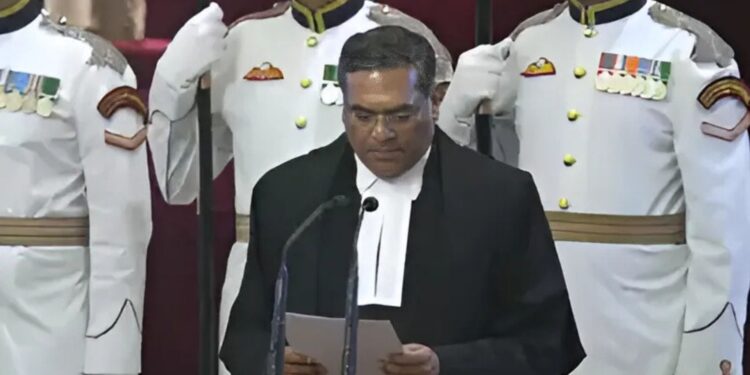Justice Sanjiv Khanna was sworn in as the 51st Chief Justice of India on Monday, with the oath administered by President Droupadi Murmu at Rashtrapati Bhavan. He will hold office for a tenure of 183 days until his retirement on May 13, 2025.
Justice Khanna’s journey in the legal profession began in 1983 when he started practicing in areas such as taxation, constitutional law, arbitration, and environmental law. Over the years, he gained a reputation for his expertise and integrity in legal matters. In 2004, he was appointed as the Standing Counsel (Civil) for the National Capital Territory of Delhi. His judicial career began in 2005 when he was appointed as an Additional Judge of the Delhi High Court, later becoming a permanent judge in 2006. Justice Khanna’s elevation to the Supreme Court came on January 18, 2019, a move that he described as a surprise due to the high honor and responsibility associated with it.
Justice Khanna is the nephew of the late Justice Hans Raj Khanna, a former Supreme Court judge who is remembered for his brave dissent in the landmark ADM Jabalpur case during the Emergency period. Justice Sanjiv Khanna, like his uncle, has made significant contributions to the Indian judiciary with his independent views.
Over the years, Justice Khanna has been part of several important constitutional and legal decisions. He played a crucial role in the Constitution Bench that upheld the abrogation of Article 370, which revoked Jammu and Kashmir’s special status. He also contributed to the Bench that struck down the controversial Electoral Bonds scheme, which allowed anonymous donations to political parties, citing concerns over transparency in political funding.
In addition, Justice Khanna led the Bench that rejected a petition in April 2024 seeking a directive to match Voter Verifiable Paper Audit Trail (VVPAT) slips with votes cast through Electronic Voting Machines (EVMs). The petition sought to ensure greater transparency in the election process. His bench also rejected a plea to keep the appointment of former bureaucrats Gyanesh Kumar and Dr. Sukhbir Singh Sandhu as election commissioners before the 2024 Lok Sabha elections.
Justice Khanna has been at the forefront of several high-profile cases. In July 2024, his Bench granted interim bail to Delhi Chief Minister Arvind Kejriwal in the money laundering case linked to the alleged Delhi excise policy scam. The same bench had previously granted bail to Member of Parliament Sanjay Singh in connection with the same case.
In August 2024, Justice Khanna presided over a case questioning a Mumbai college’s ban on students wearing the burqa, hijab, or niqab on campus. His Bench issued a partial stay on the institution’s notice, raising concerns about freedom of expression and religious rights.
Justice Khanna’s independent judicial approach has also been evident in his dissenting opinion on the Central Vista Project case in 2021, where he opposed the majority judgment. His willingness to challenge the status quo has earned him respect for his commitment to upholding constitutional values and his integrity in delivering justice.
As the Chief Justice of India, Justice Khanna’s leadership will likely be influential in shaping the future of the Indian judiciary. His tenure, though short, will continue to impact the judicial landscape with his decisions on various key issues.

















